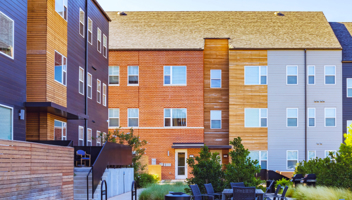It is a brave council that attempts to manage a particular section of the economy – especially one that brings in tourist revenue and provides vital jobs. However, that is exactly what Edinburgh City Council have just done in an attempt to discourage more budget operators from opening in the centre of the capital, and appealing for more luxury and five star brands to come to the city.
These moves to come despite the hotel industry already feeling that the Council is looking to strangle “the goose that lays the golden egg”, with a renewed pledge at the end of last year to look again at bringing in a “tourist tax” to raise up to £15m a year for the cash strapped authority.
The backdrop is a strong city economy, with unemployment rates well below the (already low) national average, which has evolved from a long standing reputation in financial services and tourism. The city continues to expand, amidst fast growth IT companies and a developing Fintech sector, while a weaker pound sterling has drawn international visitors and stay-at-home Brits.
So visitor numbers also continue to increase. These have risen from 3.27m to 4.1m in the last five years, taking visitor spending from £1bn to £1.4bn. The average occupancy rate is sitting at between 82-83%. Revenue per available room, the standard performance metric used in the hotel industry, is sitting at £27 above the Regional UK average.
While Edinburgh sits behind London in pure numbers, it is well ahead of London on a per capita basis and exceeds larger visitor markets such as Milan, Singapore and Rome, for international visitor numbers. Meanwhile on the investment side, Edinburgh was ranked as the UK’s most attractive hotel investment destination outside London in the recent Deloitte European Hotel Investment Survey.
Against that backdrop, the Council’s concern is the proliferation of budget hotel rooms, with a number of Premier Inn and Travelodge hotels having opened in recent years. Those two operators alone now account for approximately 58% of the budget hotel rooms in the city, and between them, they account for over a quarter of the hotel bedrooms available in Edinburgh. The Council’s perception is that steady demand and high occupancy, coupled with lower construction costs, mean that these brands can out-bid more expensive operators for sites (as well as other uses like offices).
The Council can only give planning permission for a site to become a hotel or not, but it is expected that they will bring in guidance to encourage major new hotel developments outwith the city centre (directing them to the waterfront and nearer to the airport); and encouraging five star operators to the key sites in the city centre so as to attract higher spending visitors.
In that vein the Council will have been pleased to see the recent announcement by Virgin Hotels they are bringing their first five star hotel outside America to Edinburgh, on Victoria Street in the old town. While the acquisition by Twenty14 Holdings of the iconic Waldorf Astoria (the Caledonian) in the west end after its recent strong performance will also be welcomed.
It is encouraging to see such strength in depth at the top end of the market, and the stance taken by the Council should hopefully attract more high quality operators to ‘check in’ to the capital in the near future.
Written by
Related News, Insights & Events

Building Safety Levy (Scotland) Bill introduced
Introduced on 5 June 2025, the Building Safety Levy (Scotland) Bill proposes a new tax which, if passed, will be known as the Scottish Building Safety Levy ("the Levy").

Burness Paull reinforces energy team with appointment of leading renewables lawyer
03/06/2025
Burness Paull has appointed highly regarded renewables development lawyer Nicola Scott as a partner in its energy team.

Scotland’s Passive House push: What builders, developers and industry professionals need to know
Scotland is taking bold steps to embed Passive House equivalent standards into its building regulations, with legislative changes already underway.




